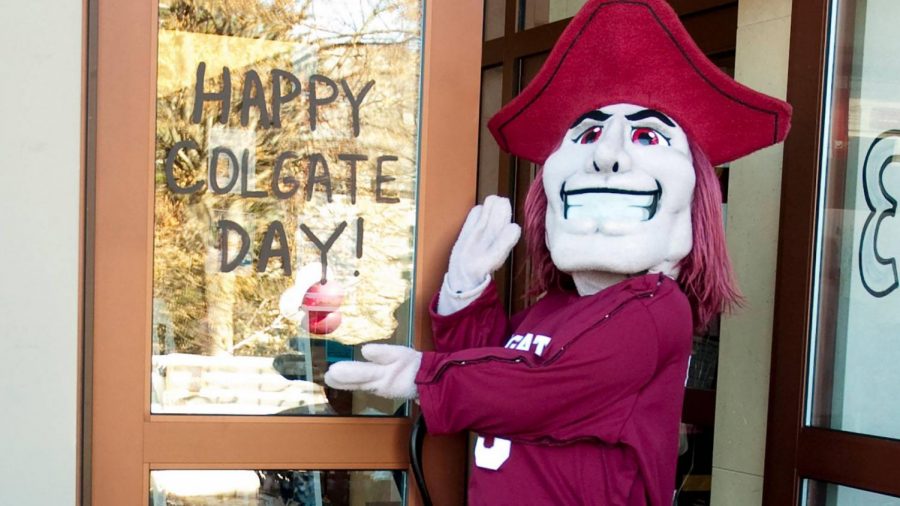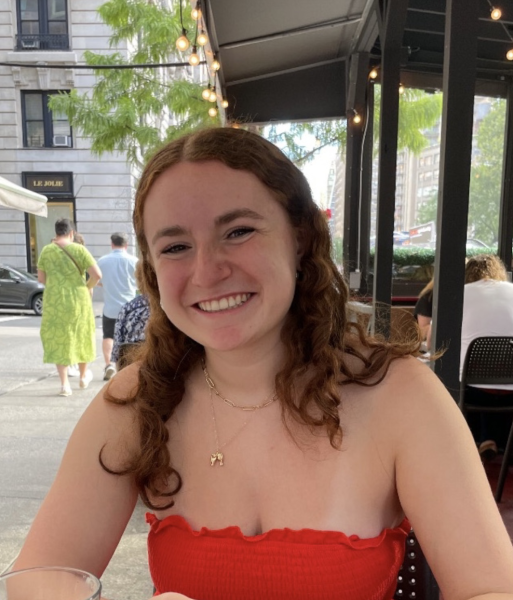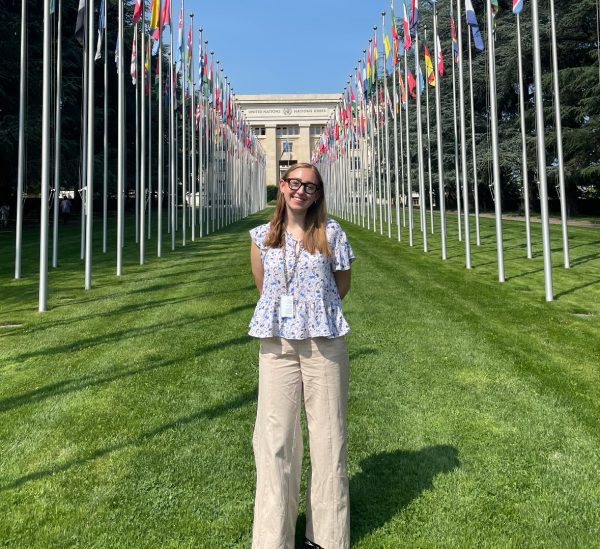Colgate Day: Celebrating Lucky Thirteen
“Wear thirteen proudly. Live it out: Learn new things, engage with new persons, climb new hills” — the words of former President Rebecca Chopp who instituted the first Colgate Day in 2005, a tradition we honor to this day as a worldwide celebration for Colgate, its community and the values it upholds. Though Colgate Day may not be at the top of every student’s mind, when it does come around, a sense of pride fills the campus, expressed by wearing Colgate regalia or sharing a chipwich with a friend.
“We would all wear Colgate attire on that day,” reflected Rodney Agnant ‘14, Assistant Director of Programming and Lead Facilitator at Chapel House. “I think it’s a classic tradition but … even as an undergraduate student, I knew that wearing these clothes not only connected me to the rest of campus but to the rest of the Colgate family … Knowing that made Colgate Day and the tradition of wearing Colgate attire really special for me during my student years and I still find it to be special now.”
What’s curious about Colgate Day is the inherent symbology of it all. The 13, deemed unlucky and something to be feared, is turned on its head.
“Narratives and traditions change as people change,” said Sarah Keen, University Archivist and Head of Special Collections and University Archives. “We’re not going to see this as a negative but [rather] as a positive and mark it as a day that we can celebrate ourselves.”
Agnant agreed with the sentiment, explaining that Colgate has changed what the symbol represents to the community.
“We’ve taken this unlucky number 13 and we’ve made it lucky. There’s that inversion that happens,” Agnant says, “And I think that similar kind of inversion is what Colgate students are doing. On the one hand, we can celebrate an institution for the great values and ideas it holds, and, on the other hand, we can take the challenges that an institution has and invert it into opportunities for us to grow.”
He observes this inversion through important turning points marked in Colgate’s history, most recently, the 2014 fall protests and the advent of Haven, and now the work of the Colgate Student Coalition and the Medusa Movement.
It is important to note that Colgate Day this year is a celebration of 50 years of coeducation, and, given the pandemic, the day itself is sure to look different from the worldwide events and festivities on campus we are accustomed to. According to Timothy Mansfield, Associate Vice President for Advancement and Alumni Relations, Colgate Day has evolved into a social media campaign amongst alumni and students to honor the women of Colgate and their legacies.
Additionally, the Medusa Movement will host their Survivor Solidarity protest, aimed at demonstrating that Colgate still has a long journey ahead to make this campus a safer place for everyone, especially for BIPOC and LGBTQ survivors. Mansfield was deeply moved by this and encourages those participating to feel pride for using this day to mobilize for an important cause.
“I and my office fully support the Medusa Movement and hope that the movement gains visibility on Colgate Day,” he remarks, “If I were talking to the organizers [I’d say that] I think it’s smart. I think that you’re capitalizing … on a day that has visibility for Colgate spirit … you’re rewriting the script.”
Professor Ellen Percy Kraly, William R. Kenan Jr. Professor of Geography and Environmental Studies and a member of the Prohibited Conduct Response Group, acknowledges that we should use Colgate Day as an opportunity to reflect on our history coupled with acknowledging the campus’ current state.
“I am one who really wants to remember the past … I don’t want that put under the rug. We have to absolutely embrace it and continue to reconcile and repair … We must be out front in terms of gender equity and promoting the status and welfare and health of women going forward in a way that is unapologetic and recognizes that we are in a racist and gendered world,” explained Kraly.
When asked about how students should honor Colgate Day this year, Keen reflected on Chopp’s words.
“We can reflect on our community, wherever it may be physically located, and offer gratitude for everyone’s efforts and show compassion to our fellow human beings and the many burdens they may be enduring at this moment.”
Agnant shares this sentiment: “[We] should consider how we can make this a place that brings even more people together … because we really have the resources and the opportunity to do that. There are some people who are on this campus and, reasonably, it’s not a home for them and not seeing that would be a missed opportunity for us.”















